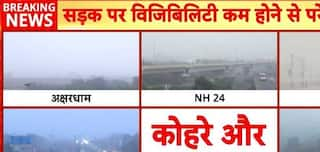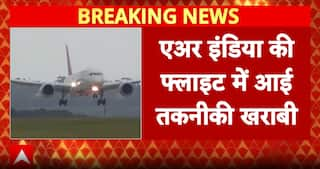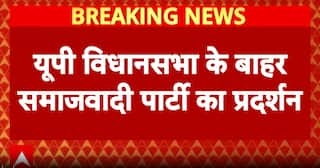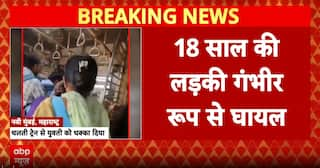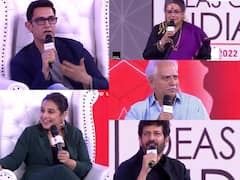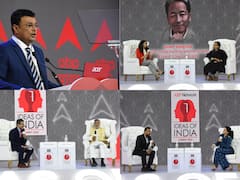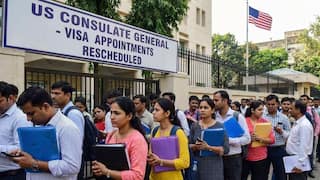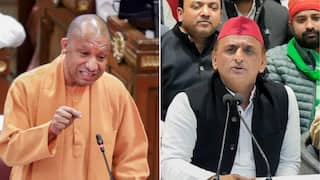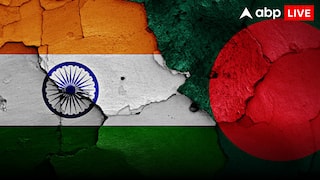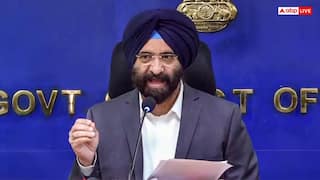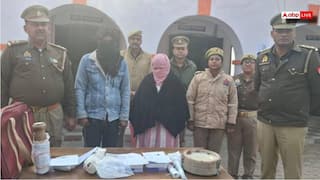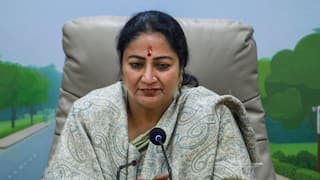ABP Ideas Of India: Innovator Sonam Wangchuk Shares Why ‘Best School Is Curiosity’
ABP Ideas of India: In conversation with Gul Panag during a session on ‘Sustainable Society’, Sonam Wangchuk spoke on "Managing Nature's Backlash: Recycle, Reuse and Renew".

ABP Ideas of India, Day 1: “Live simply in the big cities so that we in the mountains can simply live,” Engineer-turned-education reformer and innovator Sonam Wangchuk said to a packed hall Friday as he tried to send across a message on the importance of living simply for a sustainable world.
Wangchuk was speaking on the first day of ABP Network’s first 'Ideas of India' Summit, which is taking place in Mumbai on March 25-26. He was the third guest at the summit.
In conversation with Gul Panag, actor, entrepreneur, producer and pilot, during a session on ‘Sustainable Society’, Wangchuk, the founding director of SECMOL, spoke on "Managing Nature's Backlash: Recycle, Reuse and Renew".
During the 45-minute discussion, he shared his views on the need for sustainable practices for a better and climate-resilient future, the lack of such practices in urban areas that lead to drastic impacts on rural areas, and especially people on the mountains, who are in the forefront of the battle against climate change.
Born and raised in a remote Ladakh village that had just five houses, Wangchuk did not receive any formal education until the age of 9. But he called this a blessing, saying schools tend to turn children into “regiments”.
ALSO READ | ABP Ideas of India Summit 2022 Day 1 Live Updates
Why Education Must Be Relatable
Wangchuk appeared on the show in his traditional attire, which he noticed had raised a few curious eyes. “My dress is a message,” he said, to respect the diversity of the country that India is. Linking this to the phenomena of climate change, he said it was his “helplessness” that made him don this dress because he found the coastal city cold. “Why are we creating Ladakh in Mumbai?”
Speaking about the impact of formal education on young, impressionable minds, he explained why sustainability is something that needs to be taught — “since we still have the mindset of colonial pasts and ideas of comfort which eventually benefit profit-making corporations and contribute to climate change”.
A formal education sustains this or rather suppresses the ability to question this by regimenting one into “boxes of thought”, he said. Coupled with the barriers of language and lack of relatability, “where a shivering child learns F for Fan in a classroom”, schooling systems need to rethink their ways, Wangchuk stressed. He remarked that schooling doesn’t ensure learning because “the best school is curiosity”, a learning software every child is blessed with.
He also stressed on the role of indigenous languages as he highlighted the disconnect children feel in having to learn in a language they are not familiar with. Borrowing lessons from his own experiences, the educator emphasised on the importance of learning in mother tongue and asked: “When will we get that freedom?”
It’s a well known fact that it was Wangchuk who was the inspiration behind Aamir Khan’s character in the film ‘3 Idiots’, which was a superhit. The innovator who lent his facility in Ladakh for the film to be shot, however, is not happy when he is asked about the connection.
He said it’s “sad” that people know him more because of the film and not for the work that he has been doing.
Ideas Of India | Sonam Wangchuk Talks About Difference Between Schooling & Learning @Wangchuk66 @GulPanag
— ABP LIVE (@abplivenews) March 25, 2022
Read More: https://t.co/U7eHpGvSpa#ABPIdeasOfIndia #OpenMinds pic.twitter.com/jNnG132t7T
‘Empathy Drives Sustainable Choices’
Further into the discussion, Gul Panag shared how a metal bridge connecting a glacier in Ladakh 20 years ago is in shambles today with no glacier existing anymore. As she mentioned the increased frequency of flash floods and its impact on the lives and livelihood of the native people, Wangchuk mentioned how the collective memory of the people living there has no recollection of such floods like the ones in 2010, 2012, 2015 and 2017. He said how lack of proper acknowledgement of the problems and practice impact those living on the margins, and pleaded to the people living in big cities to “live simply” so that people in the mountains “can simply live”.
Wangchuk also pointed out one of the most important components to a simple living – the act of empathy. Recollecting how his childhood was spent with his mother learning the ways of nature and the need to think about others before self, he said while the schooling systems teach one to compete what requires to be taught is empathy. Empathy drives sustainable choices, he said.
Wangchuk said one needs to realise that “in life what I need is less than what is needed of me” — a thought that drove him to come back to his village to help his people.
He said empathy is the foundation of any social or business idea, and can help resolve problems. An example he cited was his own innovative practice of Ice Stupas where they apply textbook knowledge to solve local problems by storing water.
Narrating the story behind the stupas, he mentioned how using the available resources and traditional cultures they store 10 million litres of water using latent heat in conical structures that resemble the stupas that native people pray in.
Another such example remains his creation of sustainable glass houses that use sunshine to design and plan climate resilient structures for living.
Ending the discussion with what India can take away as a learning from the sustainable practices of Ladakh, he appealed to the people to adopt these practices and share resources with underprivileged members of the society to create an equitable surrounding where both nature and humans can coexist without humongous gaps in access to resources and to seek basic living for a peaceful and sustainable cohabitation.
WATCH | ABP Ideas Of India LIVE
ABP Network’s two-day 'Wild Stone presents Ideas of India' Summit will have thought leaders from various fields — culture, sports and cinema to technology, business and politics — talk about the journey of India so far.
Among the keynote speakers for ABP Ideas of India are Nobel Peace laureate Kailash Satyarthi, innovator Sonam Wangchuk, motivational speaker Gaur Gopal Das, Infosys founder NR Narayana Murthy, renowned journalist Fareed Zakaria, Congress MP Shashi Tharoor, West Bengal Governor Jagdeep Dhankhar and Union minister Nitin Gadkari.











